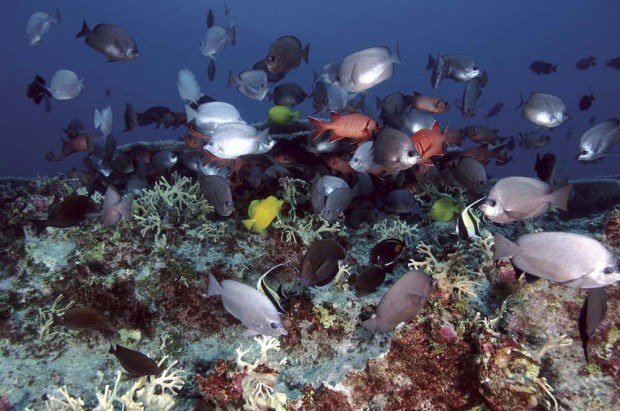LIHUE — Papahanaumokuakea Marine National Monument’s status is on the chopping block with the Trump Administration and those who lobbied for the recent expansion of the monument are concerned. “I have a real problem that he (President Donald Trump) can
LIHUE — Papahanaumokuakea Marine National Monument’s status is on the chopping block with the Trump Administration and those who lobbied for the recent expansion of the monument are concerned.
“I have a real problem that he (President Donald Trump) can go and reverse another president’s order,” said Presley Wann, of Kauai, who was part of the group, “Expand Papahanaumokuakea.” “That’s a dangerous precedent being set.”
Wednesday, President Donald Trump ordered the Interior Department to take a look at 24 different monument designations made by different presidents over the past 20 years.
Signing an executive order to review the designation, Trump dubbed the designation of such monuments as Giant Sequoia National Monument in California, Marianas Trench Marine National Monument in the Pacific Ocean and Bears Ears National Monument in Utah as an abuse of power by his predecessors.
“Today, we are giving power back to the states and people where it belongs,” Trump said in signing the executive order at the Interior Department headquarters in Washington, D.C. “This massive federal land grab; it’s gotten worse and worse.”
But Wann said undoing all the work that was put into expanding Papahanaumokuakea Marine National Monument is counterproductive.
“That’s a sacred place,” he said. “Our number one priority for us as people of Hawaii is taking care of that which feeds us, we take care of the environment and second we take care of the people that use it, and then thirdly we look at commercial development.”
Reviewing the designation of Papahanaumokuakea Monument is a “waste of federal resources,” according to U.S. Sen. Brian Schatz, D-Hawaii, who condemned the executive order in a press release.
“The expansion of the Papahanaumokuakea Marine National Monument had widespread support from the public and from Hawaii’s political leaders,” Schatz said.
The views of Native Hawaiians, Hawaii residents, Kauai’s fishermen, the commercial longline fleet, and scientists were all carefully considered before expanding the boundaries which were first laid out in President George W. Bush’s Executive Order that created the PMNM in 2006, he said.
“Although unneeded, I am confident review will show we did the right thing the right way,” Schatz said.
Though his hope is that the designation isn’t revoked, Wann said there are three priorities that should be on the forefront of the conversation: the land, the people who use the land, and lastly, those who need the resources for commercial endeavors.
“We should keep those priorities on our minds. It should be the land and the people who use the land that come first,” Wann said.


